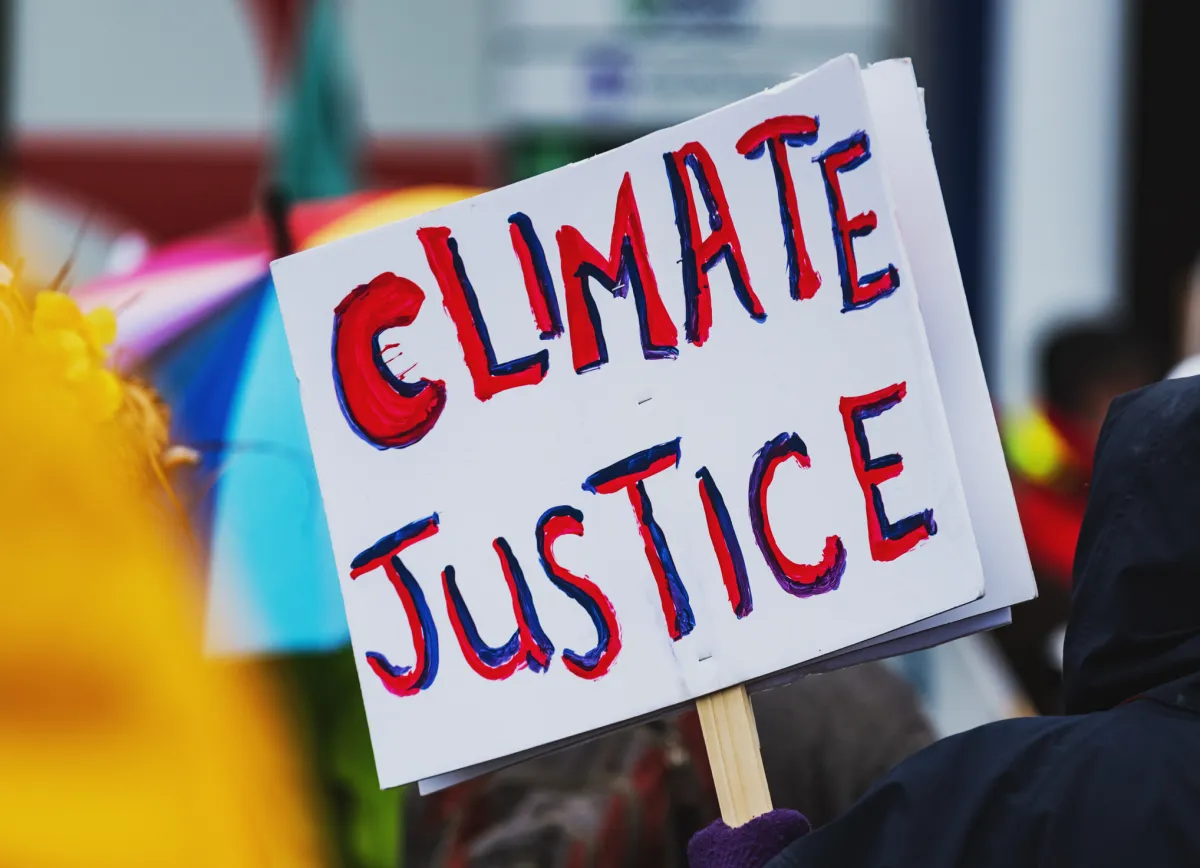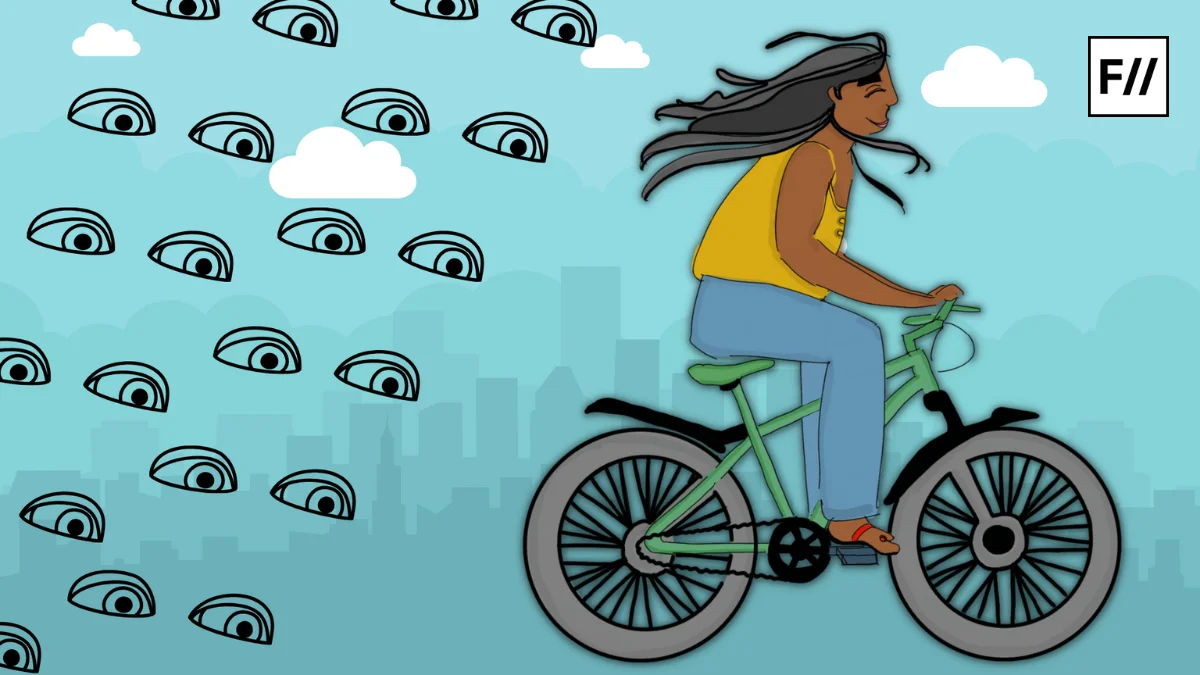Editor’s Note: FII’s #MoodOfTheMonth for July 2022 is Gender and Environment. We invite submissions on the many layers of this theme throughout the month. If you’d like to contribute, kindly refer to our submission guidelines and email your articles to sukanya@feminisminindia.com
It would be safe to say that none of us know the exact number of things we own because it is almost immeasurable. We as a human race, own and consume more than we mostly need. On one hand, people are buying what they need and making their lives better, indicating that they are being lifted out of poverty, but on the other hand, there are the well-placed who buy things beyond their needs. The impact such consumerism has on the environment is grave.
Consumerism has the consumers or the customer at its core. Consumers are encouraged to buy anything and everything, regardless of whether they require it or not. This gives rise to hoarding, and preoccupation with materialism, that affects not only the environment but also the individual in many ways.

Why is consumerism only going uphill?
In the contemporary world, consumerism is only prospering further. This can be attributed to several factors, one of them being social media and the internet. Social media is full of celebrities and influencers that people love and support. Often, products that are worn or used by celebrities are sold out to the general public. Consumer behaviour is heavily affected by social media and its references.
Personalised advertisements, sponsored posts and now reels persuade people into buying things. Other than this, we also see time and again reviews of products along the theme “products that aren’t a need but a want”, or “items that you didn’t know you needed”. We are naturally inclined to buy something that is a good dea,l but this often leads to needless purchases. A survey by Market Force indicates that 78 per cent of the purchases by individuals are guided by social media posts of the respective companies.
Women face systemic gender discrimination at work, homes and in social life. Consequently, women are also more likely to live in conditions of poverty and scarcity, owing to their lack of agency and economic assertion. Such gender inequalities are further accentuated in the wake of climate-related hazards. Women and children are 14 times more likely to lose their life in a disaster. It is also seen that women are more likely to face domestic and sexual violence post a disaster. Women and girls face more health complications resulting from climate change, as compared to men and boys. Thus, consumerism that accelerates environmental degradation and climate change, disproportionately affects women, making them doubly vulnerable and in need of support
The cult classic film ‘Fight Club‘ is heavily based on the ideas of capitalism, consumerism and material possessions. The words of Tyler Durden, portrayed by Brad Pitt, “We are by-products of a lifestyle of obsession” and “the things you own end up owning you“, holistically describe an extreme consumerist lifestyle. The movie also takes a dig at advertisements claiming they make us chase things that are useless and add no real value to our personalities.
On the other hand, if we look at real-life circumstances, we see that stores are planned and designed so that one ends up buying more than what they initially walked in to buy. This has been explained by YouTuber Safiya Nygaard in one of her recent videos.
Also read: Why Consumerist ‘Feminism’ Fails Us: Understanding Capitalist Culture
Often, consumerism is also justified as bringing happiness to the buyer. However, this is not completely true because the happiness is only brief and momentary. As soon as there is a new product launched in the market, we are inclined to get a hold of it and are bound to lose interest in the previously owned product.
This cycle goes on and on this is the basic idea of Dr. James A. Roberts’ ‘Treadmill Of Consumption’. There will always be something brand new, a better product in the market, making people dissatisfied with what they own.
Environmental concerns
We have only finite resources and we are consuming them at an alarming rate. One of the downsides of consumerism is that it leads to the depletion of natural resources. An increase in demand naturally increases production, in turn, leading to increased land use, cutting down of forests and emission of pollutants. In short, the more we consume, the more the earth gets exploited. According to the United Nations Environment Programme, almost 10 per cent of the global carbon dioxide emissions can be attributed to the fashion industry.
Almost all of the products we consume, have an environmental price tag. It is not that we need to stop buying or consuming altogether, but it is more about having a conscious attitude while consuming. The burden of addressing extreme consumerism cannot and should not be placed solely on the individual as well. Instead, companies which have their own selfish interests to make profit must also be held accountable
The exploitation and poor working conditions of those employed in fast fashion only worsen the problem. The burning of fossil fuels, which is accelerated by most industries, has a far-reaching impact on our climate and ecosystems. Mining and extraction of resources also have serious repercussions. All these activities that anchor themselves on consumerism damage the ecosystem, pollute the air, and contaminate the soil and water.
The massive amount of waste generated due to extreme consumerism is yet another concern. Waste generated by companies due to overproduction, defective products, and individual wastes after buying a new item have caused the oceans to turn into garbage pits. When it comes to landfills, the unscientific dumping of waste causes them to exude toxic chemicals into the air and water, heavily polluting resources and giving rise to numerous health hazards.

The disproportionate impact on women
A United Nations study has concluded that women are more vulnerable to the effects of climate change than men. The pervasiveness of environmental concerns like heat waves, rising water levels, droughts and other disasters are not alienated from gender inequalities.
Women face systemic gender discrimination at work, homes and in social life. Consequently, women are also more likely to live in conditions of poverty and scarcity, owing to their lack of agency and economic assertion. Such gender inequalities are further accentuated in the wake of climate-related hazards. Women and children are 14 times more likely to lose their life in a disaster. It is also seen that women are more likely to face domestic and sexual violence post a disaster.
Women and girls face more health complications resulting from climate change, as compared to men and boys. Thus, consumerism that accelerates environmental degradation and climate change, disproportionately affects women, making them doubly vulnerable and in need of support.
Almost all of the products we consume, have an environmental price tag. It is not that we need to stop buying or consuming altogether, but it is more about having a conscious attitude while consuming. The burden of addressing extreme consumerism cannot and should not be placed solely on the individual as well. Instead, companies which have their own selfish interests to make profit must also be held accountable.
We also need to acknowledge and work to lessen the uneven impact that extreme consumerism and the resultant environmental degradation have on women. Women are already at a disadvantage due to gender norms. The acute and mindless consumerism which in turn leads to ecological issues, further makes matters worse for women. It is important to have a gender lens while addressing consumerism and ensure that alternatives are made affordable and available to promote conscious consumption.
Also read: Environmental Crisis And Gender: The Effects Of Climate Change On Women’s Gynaecological Health
Featured Image Source: CalMatters
About the author(s)
Tuba is currently pursuing an Undergraduate Degree in political science, at the Delhi University. She likes reading about current affairs and also loves cats, movies, k-dramas, chai, and staying in. At other times, you would probably find her taking pictures of the sky, if not listening to music




